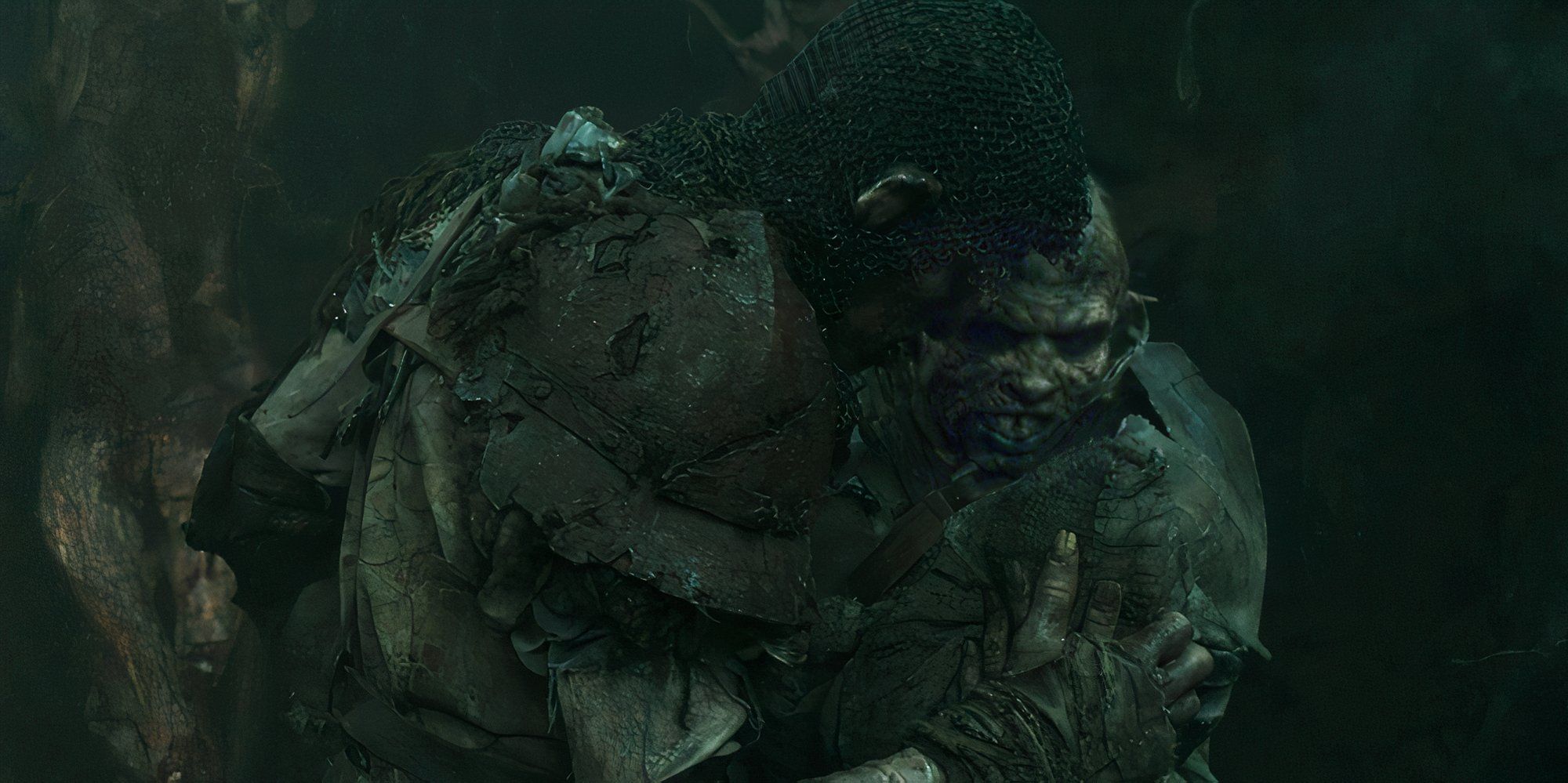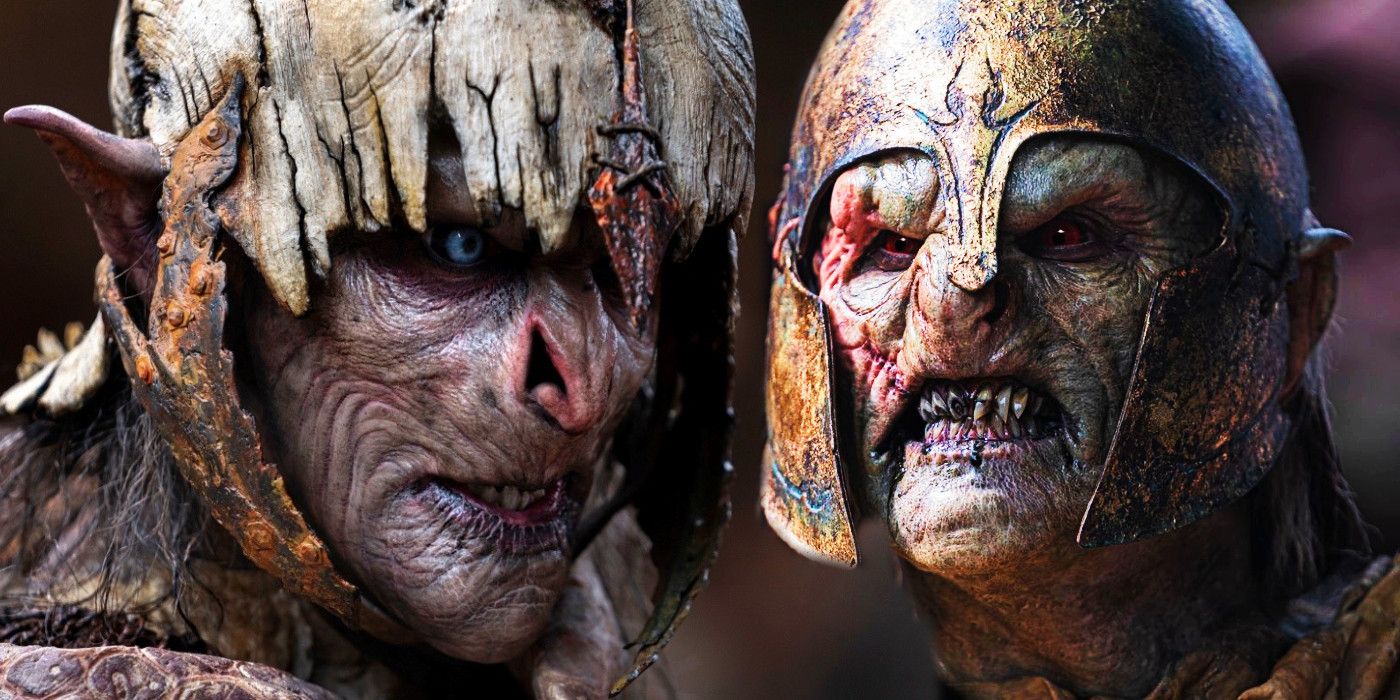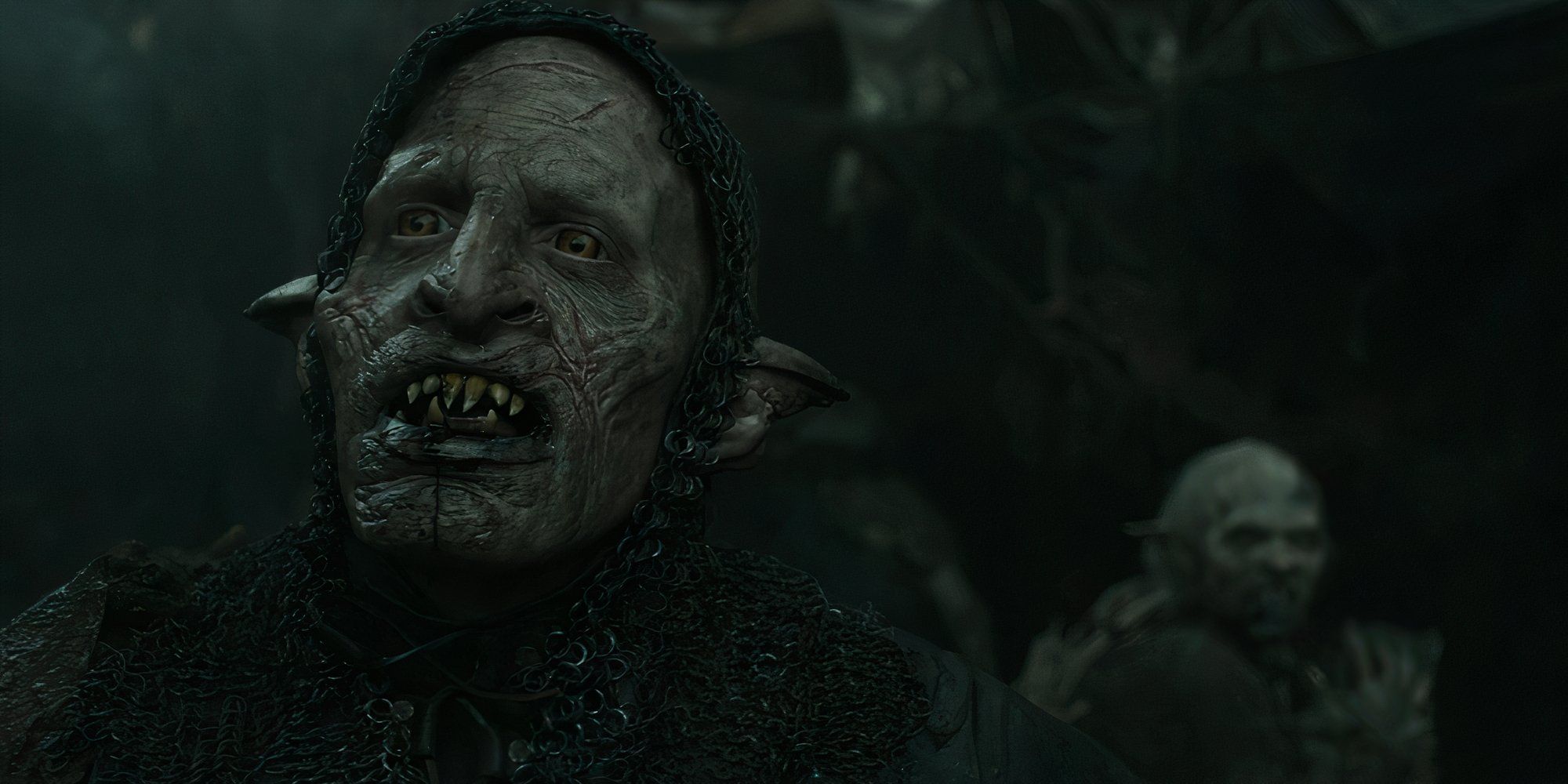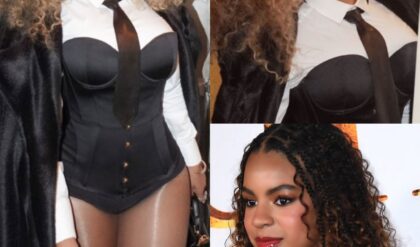The Lord of the Rings : The Rings of Power season 2 provides the very first look at a baby orc—and that’s a pretty big deal. Prime Video has portrayed the social dynamics of these villainous creatures differently than past screen adaptations of Tolkien’s work. It’s almost as if the Lord of the Rings prequel series is trying to build up some audience sympathy for Orcs, and this new angle contradicts the image established by Peter Jackson‘s movie trilogy. However, Rings of Power‘s version, including the existence of baby Orcs, finds its source in Tolkien’s own writings.
Following the eruption of Mount Doom and the establishment of Mordor, Rings of Power season 2 again features Adar and his community of Orcs. This villain, whose name means “father,” is an ancestor to many of the Orcs in the series since he was one of the early Middle-earth Elves who was corrupted by the Dark Lord Morgoth. It seems that Adar has embraced his role, and he has been fighting endlessly in Rings of Power to create a place where Orcs can live freely and safely. As his continued efforts played out in season 2, an orc mother was seen caring for her baby, and it was a pretty jolting sight.
Yes, Orc Babies Are Faithful To Tolkien’s Lord Of The Rings Lore
Orcs Being Born From The Earth Was An Invention Of Peter Jackson

It’s strange to think of Orcs ever having been babies, and maternal instincts seem like something that would be entirely beyond them. Peter Jackson’s Lord of the Rings trilogy saw Saruman breed full-grown Uruk-hai right out of the ground, and this has led to the impression that this is where all Orcs come from. However, this isn’t how Tolkien wrote it. The author said in The Silmarillion that “Orcs had life and multiplied after the manner of the Children of Ilúvatar.” Since the Children of Ilúvatar are Elves and Men, this indicates that Orcs breed and give birth to babies.
The author said in The Silmarillion that “Orcs had life and multiplied after the manner of the Children of Ilúvatar.”
The Rings Of Power’s Orc Baby Totally Changes The Role Of Orcs In Middle-earth
Rings Of Power Implies That Orcs Aren’t Just Mindless Monsters

Tolkien was never quite happy with his own explanations of where Orcs came from and how they multiplied, so he contradicted himself quite often throughout his notes. The Silmarillion was only published after the author’s death, so what is or is not canon is up for debate. For this reason, many have chosen to think of Orcs as being inherently evil, incapable of loving even their own kin. The Lord of the Rings movies embraced this version of these villainous creatures, and the idea of irredeemable monsters has become the standard.
By depicting baby orcs with their mothers, Rings of Power is challenging this. Such a young and vulnerable creature being fussed over by adults (including Adar) brings up the question of whether Orcs are born evil or if they become evil later on. It’s a Lord of the Rings-themed nature vs. nurture argument, which was, incidentally, first presented by Tolkien himself. The author struggled with the idea that anything in Middle-earth, which was created by a perfect god, could be inherently and irredeemably evil. Now, Rings of Power has leaned into Tolkien’s big question.
Are You Supposed To Feel Bad For The Orcs In The Rings Of Power?
Don’t Get Confused – The Orcs In Rings Of Power Are Still Evil

They would be Morgoth’s greatest Sins, abuses of his highest privilege, and would be creatures begotten of Sin, and naturally bad. (I nearly wrote ‘irredeemably bad’; but that would be going too far. Because by accepting or tolerating their making – necessary to their actual existence – even Orcs would become part of the World, which is God’s and ultimately good .) But whether they could have ‘souls’ or ‘spirits’ seems a different question; and since in my myth at any rate I do not conceive of the making of souls or spirits, things of an equal order if not an equal power to the Valar, as a possible ‘delegation’, I have represented at least the Orcs as pre-existing real beings on whom the Dark Lord has exerted the fullness of his power in remodelling and corrupting them, not making them . That God would ‘tolerate’ that, seems no worse theology than the toleration of the calculated dehumanizing of Men by tyrants that goes on today. There might be other ‘makings’ all the same which were more like puppets filled (only at a distance) with their maker’s mind and will, or ant-like operating under direction of a queen-centre.
— The Letters of J. R.R. Tolkion, Letter 153Jackson’s depiction of irredeemable monsters born from pits served its purpose, but Rings of Power‘s approach—that Orcs are both evil and victims of evil—allows for a far more complex world. The prequel TV series takes a closer look at Sauron himself, exploring how he justifies his own evil intentions and his perspective of Morgoth’s corruption. Therefore, it makes sense that his followers, who are essentially slaves, would be explored in a similar way. They certainly won’t be redeemed, but audiences of Rings of Power can walk away from the series contemplating the same concepts as Tolkien himself.





